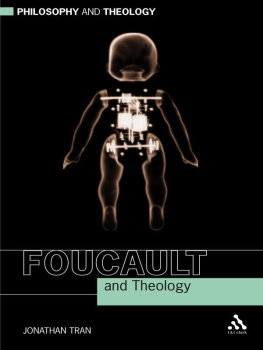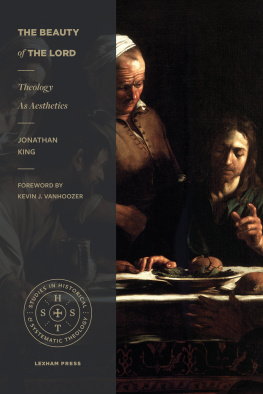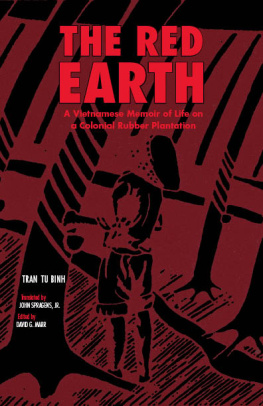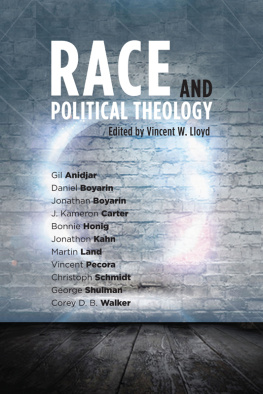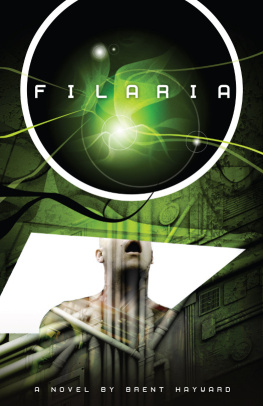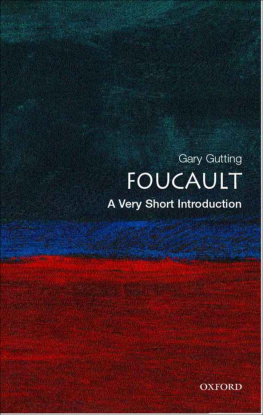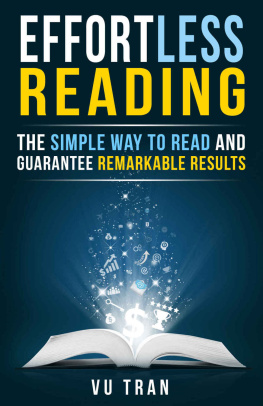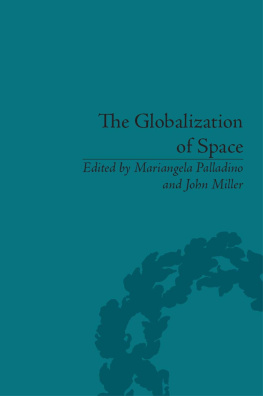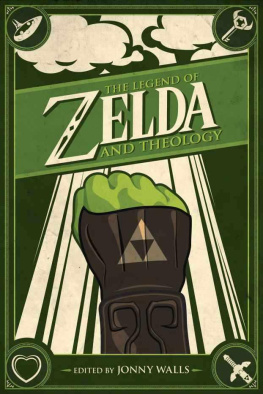Jonathan Tran - Foucault and Theology
Here you can read online Jonathan Tran - Foucault and Theology full text of the book (entire story) in english for free. Download pdf and epub, get meaning, cover and reviews about this ebook. year: 2011, publisher: Bloomsbury Academic, genre: Religion. Description of the work, (preface) as well as reviews are available. Best literature library LitArk.com created for fans of good reading and offers a wide selection of genres:
Romance novel
Science fiction
Adventure
Detective
Science
History
Home and family
Prose
Art
Politics
Computer
Non-fiction
Religion
Business
Children
Humor
Choose a favorite category and find really read worthwhile books. Enjoy immersion in the world of imagination, feel the emotions of the characters or learn something new for yourself, make an fascinating discovery.
- Book:Foucault and Theology
- Author:
- Publisher:Bloomsbury Academic
- Genre:
- Year:2011
- Rating:4 / 5
- Favourites:Add to favourites
- Your mark:
- 80
- 1
- 2
- 3
- 4
- 5
Foucault and Theology: summary, description and annotation
We offer to read an annotation, description, summary or preface (depends on what the author of the book "Foucault and Theology" wrote himself). If you haven't found the necessary information about the book — write in the comments, we will try to find it.
Foucault and Theology — read online for free the complete book (whole text) full work
Below is the text of the book, divided by pages. System saving the place of the last page read, allows you to conveniently read the book "Foucault and Theology" online for free, without having to search again every time where you left off. Put a bookmark, and you can go to the page where you finished reading at any time.
Font size:
Interval:
Bookmark:

Foucault and Theology
Other titles in the Philosophy and Theology series include:
Zizek and Theology, Adam Kotsko
Nietzsche and Theology, Craig Hovey
Girard and Theology, Michael Kirwan
Wittgenstein and Theology, Tim Labron
Hegel and Theology, Martin J. De Nys
Derrida and Theology, Steven Shakespeare
Badiou and Theology, Frederiek Depoortere
Vattimo and Theology, Thomas G. Guarino
Kierkegaard and Theology, Murray Rae
Kant and Theology, Pamela Sue Anderson and Jordan Bell
Adorno and Theology, Christopher Craig Brittain
Foucault and
Theology
Jonathan Tran

Published by T&T Clark International
A Continuum Imprint
The Tower Building, 11 York Road, London SE1 7NX
80 Maiden Lane, Suite 704, New York, NY 10038
www.continuumbooks.com
All rights reserved. No part of this publication may be reproduced or transmitted in any form or by any means, electronic or mechanical, including photocopying, recording or any information storage or retrieval system, without permission in writing from the publishers.
Jonathan Tran, 2011
Jonathan Tran has asserted his right under the Copyright, Designs and Patents Act, 1988, to be identified as the Author of this work.
British Library Cataloguing-in-Publication Data
A catalogue record for this book is available from the British Library.
ISBN 13: 978-0-567-18162-6
For Thierry McEldowney
Contents
Acknowledgments
Long before Michel Foucault taught me the work thought brings to bear on itself, my brother Thierry taught me to love thinking, a gift about as endless as one can receive. To him I dedicate this book with greatest affection.
My wife Carrie and I lost two babies to miscarriages as this book was being completed. Mourning those losses has helped me appreciate more fully Carries deep grace and the extraordinary gifts that are our other children, Tahlia and David. We can only hope that all my time with Michel Foucault will somehow help us more joyfully join our lives to the gracious gift of Gods triune life.
This book could not have been written without consecutive Summer Sabbatical Grants from the Office of the Vice President for Research at Baylor University, a 2009 Baylor University Arts and Humanities Research Development Grant, and subsequent summer travel allowances provided by Dr. Bill Bellinger, Chair of Baylors Religion Department. Dr. William Storrar of Princeton Theological Seminary provided summer research residency at the Center for Theological Inquiry, Princeton, NJ in summer of 2008, as did Dr. Mark Mann at the Wesleyan Center for 21st Century Thought at Point Loma Nazarene University in summers 2009 and 2010. Moody-Jones Library at Baylor University, especially its staff and highly proficient inter-library loan and delivery services, made research less cumbersome than it could have been. Lindsay Cleveland, K. C. Flynn, and Tyler Grant provided fantastic research assistance in every facet. Stanley Hauerwas, Craig Hovey, Chris Moore, Jenny Howell, and John Wright each read portions of this book and offered invaluable suggestions. Tom Kraft at T&T Clark proved to be an exceedingly responsive and patient editor.
Portions of this book were presented at the Annual Meetings of the Society of Christian Ethics as well as the Institute for Theology, Imagination and the Arts, St Marys College at the University of St Andrews. Sections of were previously published as Transgressing Borders: Genetic Research, Immigration, and Discourses of Sacrifice, Journal of the Society of Christian Ethics 28:2 (2008), 97116; and The Otherness of Children as a Hint of an Outside: Michel Foucault, Richard Yates, and Karl Barth on Suburban Life, Theology & Sexuality 15:2 (2009), 191211. Respective permissions from Georgetown University Press and Equinox Publishing Ltd 2009 are much appreciated. Finally, thanks to Penguin Press for permission to use portions of J. M. Coetzees Elizabeth Costello (New York: Penguin, 2004).
Introduction
James Bernauer reports the following exchange between the atheist Michael Foucault and several American academics at the University of California in the spring of 1983, in what would prove to be the final year of Foucaults life. Speaking of the possibility of resistance, Foucault said:
Despair and hopelessness are one thing; suspicion is another. And if you are suspicious, it is because, of course, you have a certain hope. The problem is to know which kind of hope you have, and which kind of hope it is reasonable to have in order to avoid what I would call not the pessimistic circle you speak of, but the political circle which reintroduces in your hopes, and through your hopes, the things you want to avoid by these hopes.
When someone commented that Foucault sounded very Christian he replied, Yes, I have a very strong Christian, Catholic background, and I am not ashamed.
The following serves a single purpose. Michel Foucault offers a profound, if complicated, account of hope at a time when there exists many reasons for despair. I intend to appropriate this account toward Christian ends. While the differences between Foucaults hope and the churchs hope are multiple and deep, I will spend little time analyzing those differences, for the simple reason that I find Foucault too interesting to digress much from what he has to say. Throughout this book, I stray from his texts only for the occasional purpose of taking what he says to clarify a few things Christianity has to say. Along the way, I try to offer a fresh analysis of Foucault and from that a fresh analysis of Christianity.
My appropriation consists of two parts. First, I describe this hope by examining Foucaults figuration of power and tease out his conception of resistance implicit to it. Second, I characterize this conception of resistance as freedom and subjectivity most readily articulated in the last stages of Foucaults career. In order to thicken my description of power and show why it might be helpful to Christian faithfulness, in the first part I relate Foucaults ubiquity of power to the totalizing efforts of late capitalism. I believe this demonstrates quite dramatically how Foucaults strange notion of power portends the fate of capitalist societies. This also allows us a glimpse into what remains for contemporary existence and so why Foucault continues to matter for us. To this end, I represent capitalisms totalizing powers through Michael Hardt and Antonio Negris three-part Empire series. Hardt and Negri ably demonstrate the complete nature of powers transformative capabilities as well as reasons for hope within it. Continuing my argument in the second part, I link Foucaults account of freedom and subjectivity, what he calls self-care, to Christian discipleship. By care for the self Foucault means the selfs ability to tell its own story, to both be determined by and determine the meaning of its existence. To this end, I begin the second part by ruminating on biography, juxtaposing a fascinating controversy over a Foucault biography with Foucaults work on self-comportment and self-writing in relationship to the modern selfs biography. Next I outline Foucaults complicated conception of the selfs constitution in freedom by traveling the distance of Martin Heideggers deep influence on Foucault. Following, I offer an instance of what Christian self-care might look like by turning to companionship with animals and exemplifying self-care through the autobiographic trope of saving ones soul in the context of enveloping capitalist logics of power discussed in the books first part. I do so by tending to what Stanley Cavell and Cora Diamond have taken as ordinary language philosophy as attention to self and world.
Font size:
Interval:
Bookmark:
Similar books «Foucault and Theology»
Look at similar books to Foucault and Theology. We have selected literature similar in name and meaning in the hope of providing readers with more options to find new, interesting, not yet read works.
Discussion, reviews of the book Foucault and Theology and just readers' own opinions. Leave your comments, write what you think about the work, its meaning or the main characters. Specify what exactly you liked and what you didn't like, and why you think so.

